Research projects
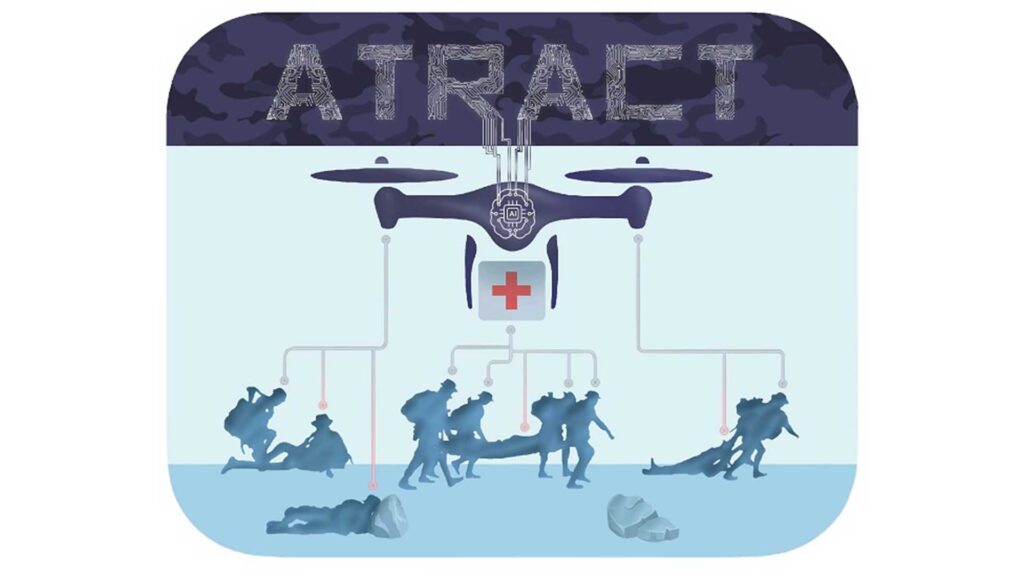
ATRACT: A Trustworthy Autonomous system to support Casualty Triage
Dates: April 2023 – March 2026
Funding amount and source: £869,031 from Engineering & Physical Sciences Research Council (EPSRC)
People involved: Prof Ardhendu Behera
Description: The project aims to develop drone-based active sensing and simultaneous detection and monitoring of injured soldiers on a battlefield for rapid effective prioritisation in a trustworthy manner before the evacuation helicopter arrives. Beyond the battlefield, it can be adapted to civilian applications including search and rescue, ambulance emergency, and other multiple-casualty disaster situations. Its trustworthiness will be achieved by considering the legal, ethical, system, and human elements embedded in the design, development, and testing phases.
Academic partners: Loughborough University London, University of Brighton and University of Portsmouth
Find out more about ATRACT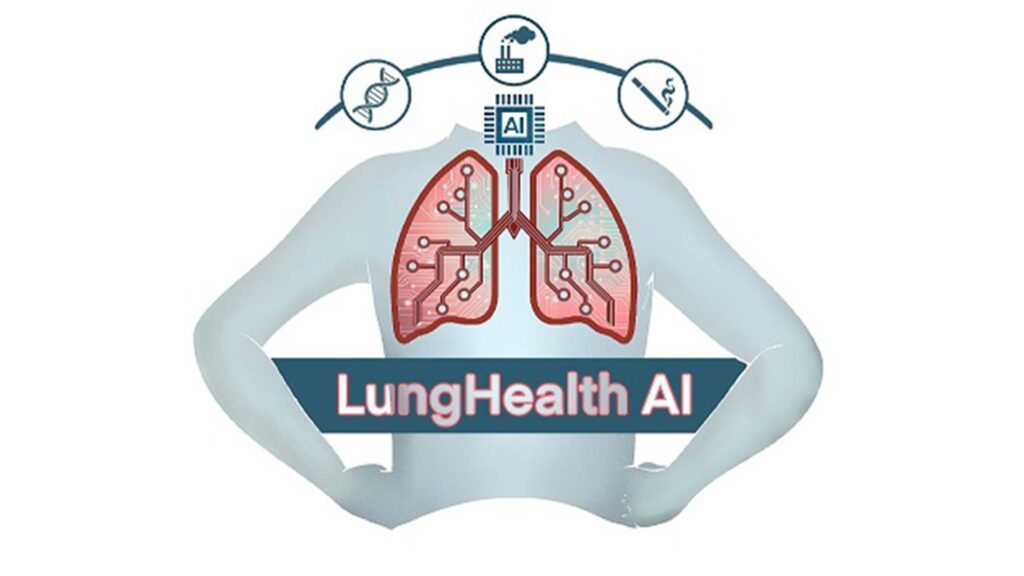
LungHealth AI: Using AI to improve early detection and diagnosis of lung cancer
Dates: November 2022 – March 2024
Funding amount and source: £75,000 from Cancer Research UK (CRUK)
People involved: Prof Ardhendu Behera
Description: Lung cancer is the 3rd most common cancer in the UK, accounting for 13% of all new cancer cases with abysmal survival and a large unmet clinical need. This dismal survival statistics could be improved through early detection and diagnosis which may allow more treatment options. Low-dose CT screening for lung cancer can facilitate early detection. However, several challenges remain including the unmet need of how best to select subjects to screen in a cost-effective manner due to a lack of established and validated tools. Our goal is to develop a ‘proof-of-concept’ involving an artificial intelligence (AI) system aiming to transform the early diagnosis of lung cancer, using longitudinal data (demographic, lifestyle, HES, etc.) to discover the hidden spatiotemporal evolving patterns within multimodal data. Our hypothesis is that such ‘hidden patterns’ perhaps not visible to the human eye, that are responsible for transforming pre-diagnosis to diagnosis. We hope to answer to ‘what’ patterns/relations and in ‘whom’ and ‘when’ this transformation is likely to occur.
Academic partners: University of Liverpool
Find out more about LungHealth AI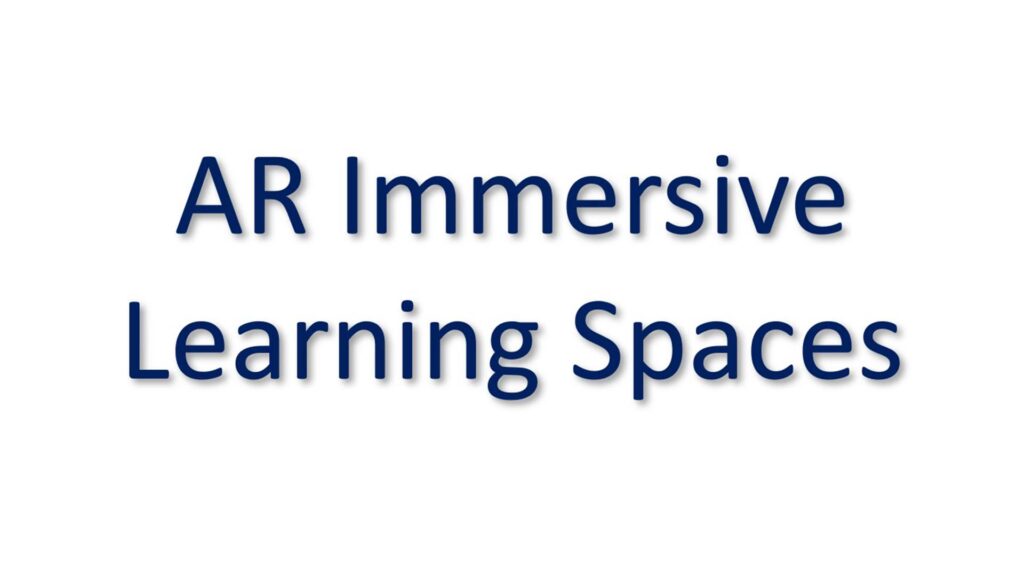
Augmented Reality (AR) to support the design and delivery of AR immersive learning spaces
Dates: November 2023 – October 2026
Funding amount and source: £205,332 from Innovate UK
People involved: Prof Ardhendu Behera, Prof Yonghuai Liu and Dr Peter Matthew
Description: Over the course of the KTP, Gener8 will collaborate with the University to put in place the core AR development frameworks, infrastructure and methodologies to be able to rapidly and repeatedly specify, develop, test and deploy AR-enriched learning simulations to customers. In establishing and embedding this ‘blueprint’, the KTP will also test, generate and commercialise a number of ‘fore-runner’ solutions which rely on different branch specialisms of AR and would be applicable for use in different learning environments. Executing this project represents a major shift in practice and culture within Gener8, in terms of their software development. The AR developer will create a layer of digital experience and be able to work with video game engines.
Industrial partner: Gener8 Spaces Ltd.
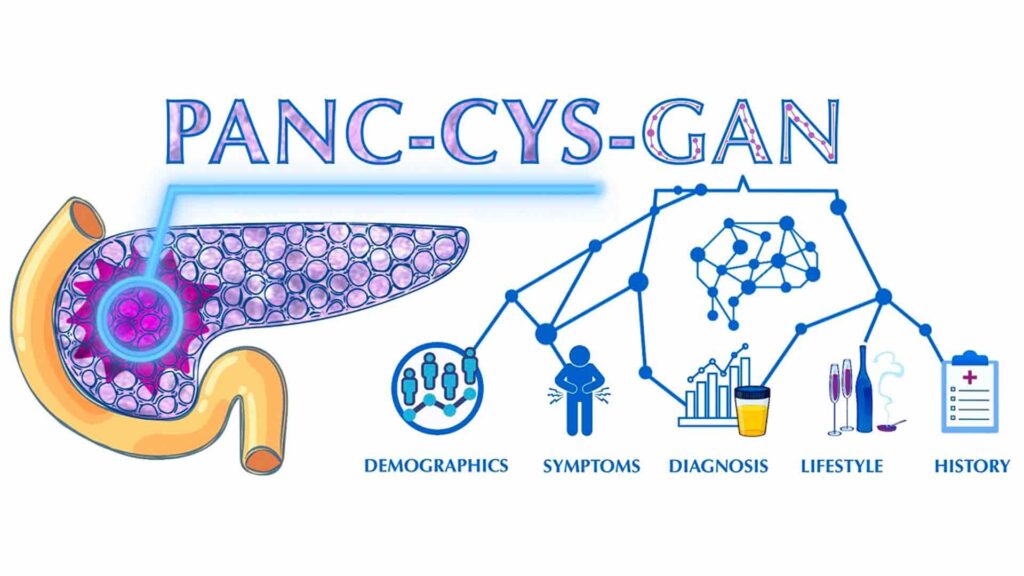
PANC-CYS-GAN: A Multimodal Longitudinal Generative Adversarial Network (GAN) to Discriminate High-risk Cysts for the Early Detection of Pancreatic Cancer
Dates: November 2021 – March 2023
Funding amount and source: £100,000, Cancer Research UK (CRUK), Pancreatic Cancer UK (PCUK), and Engineering & Physical Sciences Research Council (EPSRC) UK.
People involved: Prof Ardhendu Behera
Description: There have been major advances in AI in the last five years, and their impact is already visible in the entertainment, automotive and manufacturing industries, but its transformative potential in early detection of PC is yet to be realized. PANC-CYS-GAN aims to address this bottleneck by developing innovative computational analytics that can learn PC-related latent representation of messy and complicated distributions of longitudinal multimodal data. It aims to provide a range of short- and long-term measurable global benefits harnessing UK’s positioning in health-informatics and artificial intelligence at the world stage to develop health technology emphasising holistic approach. Information such as, but not limited to, demographic, lifestyle, medical conditions, pathology and blood/urine tests are routinely collected. We hope by integrating host of such routinely collected information with medical imaging data through a Generative Adversarial (GAN) model we can potentially help in triaging patients better.
Academic partners: Quenn Mary University of London (QMUL); University College London (UCL); University of Hertfordshire and Manchester Metropolitan University (MMU)
Find out more about PANC-CYS-GAN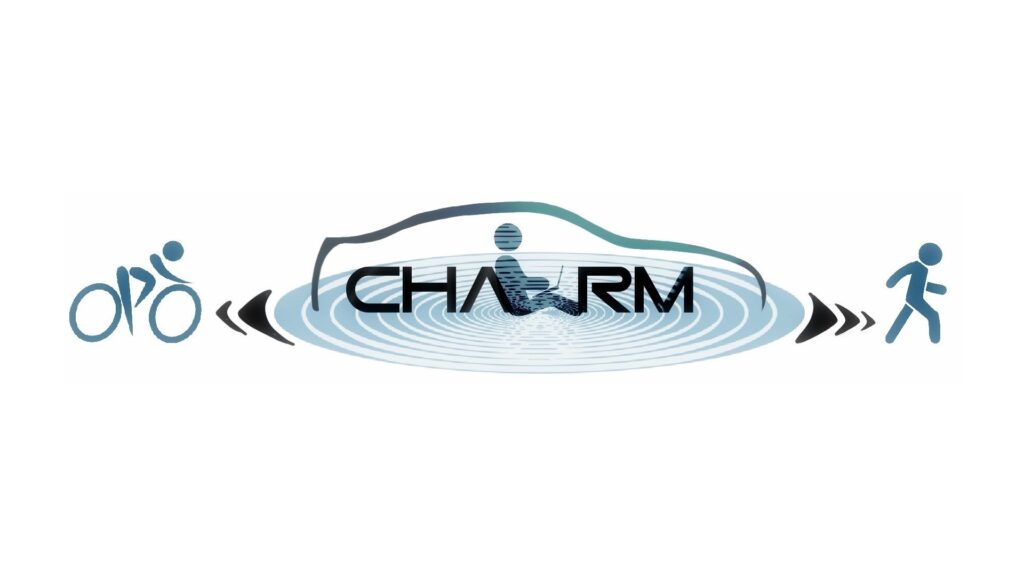
CHARM: Context-aware Human Activity Recognition and Monitoring for Intelligent Vehicles
Dates: April 2019 to January 2022
Funding amount and source: £200,000, British Council and UKIERI – UK-India Education and Research Initiative
People involved: Prof Ardhendu Behera, Prof Yonghuai Liu, Prof Nik Bessis, Prof Dima Damen (University of Bristol), Prof Venkatesh Babu (IISC Bangalore, India) and Prof C. S. Shankar Ram (IIT Madras, India)
Description: Today’s automobile is nearly autonomous due to Advanced Driver-Assistance Systems (ADAS) ranging from adaptive cruise control, automatic emergency braking, auto-parallel parking to lane-keeping assistance and automated steering. This is feasible due to ultrasonic sensors, cameras, radars and lidars, focusing on surrounding environmental perception. However, minimal work has focused on the human driver perspectives and human error is overwhelmingly to blame for most accidents. CHARM’s aim to develop a novel context-aware computational framework for monitoring and anticipating human driver’s activity (distractions, eating, drinking, etc) in a given context (congestion, weather, road works, traffic sign, etc). This is a difficult problem involving computer vision (CV), big data and artificial intelligence (AI), with immediate applications to smart cyber physical systems/environments. The framework is targeted for the ADAS for safe driving, Take-Over-Request (TOR) for the next generation intelligent autonomous vehicles, as well as more natural human-car/robot/machine interactions associated with the UKIERI-DST cyber physical systems discipline.
Academic partners: University of Bristol, Indian Institute of Science (IISc) Bangalore, and Indian Institute of Technology (IIT) Madras
Find out more about CHARMSynAM: Integration of Advanced Experiments, Imaging and Computation for Synergistic Structure-Performance Design of Powders and Materials in Additive Manufacturing
Dates: April 2024 – March 2028
Funding amount and source: €795,800, Horizon 2020
People involved: Prof. Yonghuai Liu, Prof. Ardhendu Behera, Dr. Peter Matthew, and Dr. Swagat Kumar
Description: The proposed project aims to collaboratively integrate modern data system, experiments, imaging, machine learning and predictive engineering-physical modelling for additive manufacturing (AM) and materials developments. Through focused knowledge transfer, close interdisciplinary teamwork and fusion of the academic-industrial research/resource, the team will jointly establish a systematic data system of the structure, properties, defects and distortions in AM of a range of materials at different scales and use the data for materials development and AM process optimisation. The effect of AM processing and surface treatments on the surface integrity and functional properties (e.g. corrosion resistance) of AM materials is to be systematically established. The project will develop practical imaging and processing algorithms for the analysis, design, and joint quality control for the input materials in AM, including powder production. Engineering and key physical modelling is to be integrated with machine learning for predictive composition and structure design for optimum synergy between printability, properties and performances. Materials development balancing printability and structure properties will be focused on advanced materials requiring critical phase control in AM, including duplex stainless steels, amorphous glass metals and Mg. The advanced data and materials will serve as a pivoting platform for future research and innovation in AM, speeding up material development within the full product development life cycle.
Academic partners: Politechnika Slaska (PL), Liverpool John Moores University (UK), University of Ghana (GH), Universiteti I Prishtines (XK), Universiti Teknologi Malaysia (MY), Turkiye Bilimsel VE Teknolojik Arastirma Kurumu (TR)
Industrial partners: Ermetal Otomotiv VE Esya Sanayi Ticaret AS (TR), Amazemet SP.Z O.O.(PL)
Development of an automatic scoring software tool utilising artificial intelligence to measure a cleft aesthetic outcome for children born with a complete unilateral cleft lip
Dates: December 2024-December 2025
Funding amount and source: £49,882, CLEFT: Bridging the Gap
People involved: Prof. Yonghuai Liu, Prof. Ella Pereira, and Dr. Aristides Tagalakis,
Description: Parents of children born with a cleft lip want to have confidence that their cleft team will do the best technical operation according to the best protocol to get the best outcome in terms of facial appearance. We know how to measure other important outcomes in cleft, such as psychological, speech, dental and facial growth, in a robust scientific way, yet we are unable to measure facial appearance. This project will use artificial intelligence to score facial photographs of children with a cleft lip after they have had an operation. The scores will be correlated directly to scores made by groups of humans to ensure that they are meaningful. Our aim is to create an easy-to-use automated software tool that can score how a person’s face looks after cleft lip surgery, which will enable cleft teams to assess which technical method, timing or surgeon gets the best result.
Academic partners: The University of Central Lancashire
Industrial partners/Charity bodies: Birmingham Women and Children’s Hospital, The Welsh Centre for Cleft Lip and Palate
PAK-UK Education Gateway Mobility Partnership Grant for Faculty
Funding amount and source: £62,638, British Council
People involved: Dr Muhammad Usman and Dr Khalil Afzal (COMSATS, Pakistan)
Description: The overarching objective of this partnership is to provide a platform to faculty members to share innovative ideas, best practices, and expertise in thematic areas. Most women in Pakistani universities have fewer opportunities to engage in research collaborations, get wider academic exposure, establish connections with international universities and travel nationally and abroad. This collaboration will provide an opportunity for women, especially from the underdeveloped Southern Punjab, Interior Sindh, and KPK, to get exposure to teaching, research, and leadership skills of international standard. This partnership will also provide an opportunity to work towards uplifting minorities and solving socio-economic and other issues by using Artificial Intelligence (AI). Agriculture is the largest sector of employment in South Punjab and Interior Sindh. There is a lack of healthcare facilities in most parts of Pakistan. The consortium will identify local problems, especially related to underdeveloped areas, and work towards the improvement of these sectors through innovations by employing the Internet of Things (IoT) and AI technologies.
Transnational Curricula for Digital Forensics
Funding amount and source: £45,000, British Council
People involved: Dr Muhammad Usman and Dr Khalil Afzal (COMSATS, Pakistan)
Description: The global digital forensic market is expected to reach over 15 billion GBP by 2027 due to ever increasing cybercrimes carried out by the state-sponsored, organized criminal gangs and hacktivists. The digital forensic science job market is expected to grow around 15% between 2020 to 2030. Digital forensic professionals require in-depth cross-disciplinary technical knowledge and hands-on skills. The digital forensic is a global profession due to the lack of geographical boundaries between cybercriminals and victims. Therefore, digital forensic practitioners need to be trained by considering the international context (such as legal, ethical, technical, logistical, and operational challenges). To the best of our knowledge, there is no comprehensive curricula document that can satisfy the above requirements and provide systematic and standard guidelines to training and education providers to design undergraduate, postgraduate and professional training programs. The aim of this project is to review curriculum frameworks and knowledge bodies such as Cybersecurity curricula by ACM; Cybok by NCSC, UK; Saudi Framework for Higher Education in Cybersecurity (Cyber-Education) by the National Cybersecurity Authority in Saudi Arabia; Computing Curricula by ACM and IEEE-CS; Qualification Specification by BCS, UK and other related documents. Then a transnational digital forensic curricula framework with relevant knowledge areas will be published. It is expected that these publicly available documents will inform national, regional, and global institutes and training providers to underpin their curriculum.